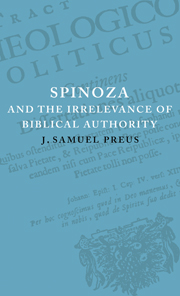Book contents
3 - Disengagement on the right
Published online by Cambridge University Press: 03 February 2010
Summary
To prefer to err with Scripture than be right with the innovators: that is the pathos of orthodoxy.
Klaus ScholderMeyer's radical philosophical proposal, for all its faults, deserves credit for breaking new ground. He challenged 150 years of development in Protestant ways to approach scripture. He had defined the insoluble problem for “the religion of Protestants” as follows: there could be no intellectual or social peace in Christendom until some metaconfessional criterion was agreed to about who or what should be the interpreter of scripture. His critique of the essential Protestant doctrines supporting sola scripturism touched a raw nerve in the already pained body of expert Protestant opinion. The Dutch Reformed church still smarted over the wound left by the Arminian controversy at the beginning of the century. Meyer had exploited the unclarity or open disagreement among theologians regarding both the “objective” (text) and “subjective” (reader) dimensions of interpretation. And then he had proposed philosophy – the use of allegedly universal (versus sectarian) principles – as the only cure. The very radicality of his remedy immediately precipitated sharp responses and drove the discussion into areas that had not been explored before. And so he moved the argument to new ground.
The Protestant right, subject of the present chapter, responded with indignation at Meyer's rationalism, reacting dogmatically and sometimes politically against any injury to the immaculate scripture or corruption of public opinion through the proud self-assertion of reason. As we shall see, these commentators tended to respond in two different ways to Meyer's proposal that philosophy should be the interpres scripturae: one side, most emphatically represented by Samuel Maresius, emphasized the objectivity of the text, insisting that scripture would be its own interpreter, on its own terms.
- Type
- Chapter
- Information
- Spinoza and the Irrelevance of Biblical Authority , pp. 68 - 106Publisher: Cambridge University PressPrint publication year: 2001



